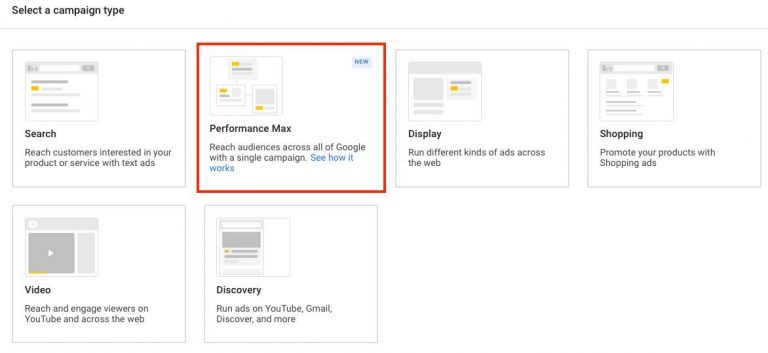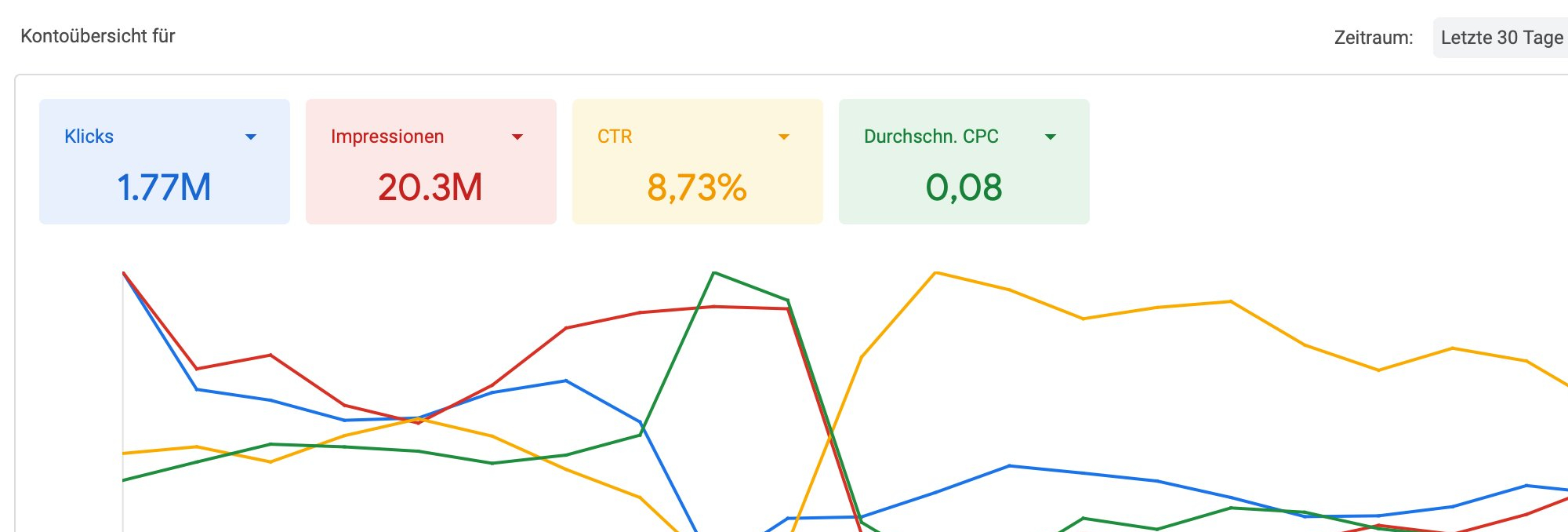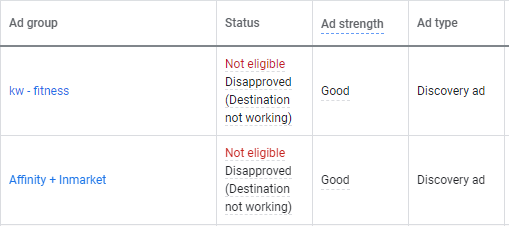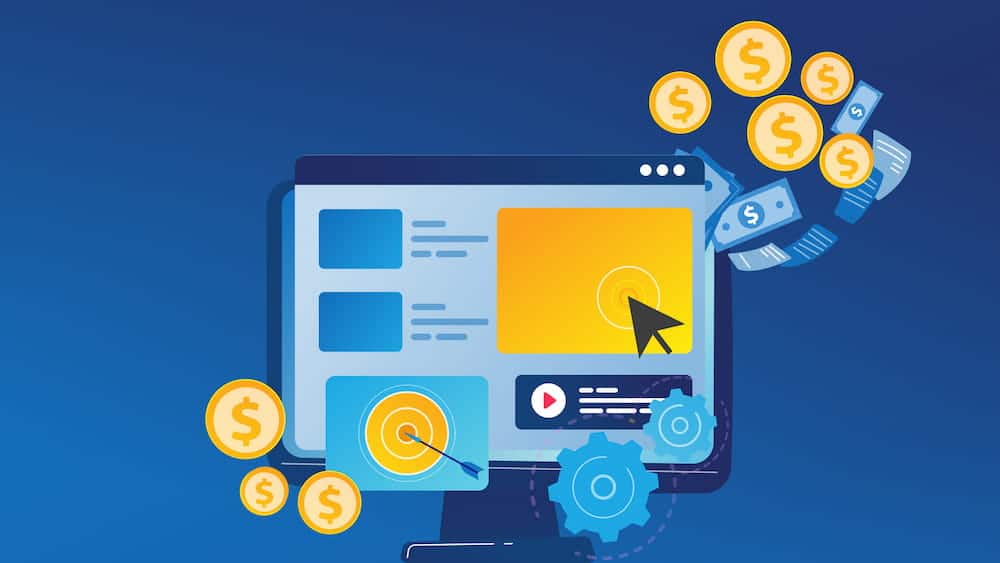If you missed some of our recent posts this month—don’t worry! We’ve got the best PPC posts right here for you to read. From PPC tactics to Google Ads—we’ve got it all for you.
4 reasons click volume decreases by Search Engine Journal

It’s possible that the real reason for the drop in Google Ads clicks is something you wouldn’t expect.
If you’re missing out clicks, that means your competitors are poaching those potential customers. Getting those clicks to your website in the first place is even more important since only about 3% of website visits convert. So, what do you do when click volume drops unexpectedly? How can you identify the cause of the problem and fix it?
- Has your quality score dropped recently?
- Low Impressions
- New ads
- Your competitors are outbidding you
Read on Search Engine Journal
Google Ads conversion tracking by WordStream

Let’s say you have noticed that you have received a good number of clicks after activating your Google Ads campaigns. But how do you figure out how many of those clicks turn into sales? The answer is simple: you need to track conversions.
If you don’t know what works and what doesn’t, you won’t know which parts of your campaigns to improve. Tracking conversions will show you which ads are converting the most. With the information you gain here, you can optimize your keywords, budgets, and more. Website actions, phone calls, app installs and in-app conversions, imported or offline conversions, local conversions are the most important conversions from Google. You can choose the ones that match your needs.
Read on WordStream
How to optimize PPC reporting for ad creatives by Search Engine Land

Automation can be beneficial to your business when it comes to digital advertising. Therefore, it’s our responsibility to prepare and analyze effective results.
In order to get the most out of the campaigns, it is necessary to prepare detailed reports on the performance of the items. Using this data, we can easily understand what needs to be improved and what is working. By creating an effective reporting strategy for PPC, you’ll take your entire business to another level and make it quite easy for you to achieve the most effective results.
- Identify the key creative elements to compare the results
- Analyze the performance of all elements
- Develop a clear feedback process for the creative team
- Consider creative fatigue as a factor
Read on Search Engine Land
How to control Performance Max campaigns by Search Engine Land

Performance Max helps you optimize automated campaigns. However, marketeers may have concerns because of the limited controls.
You should have no concerns if you prepare Performance Max campaigns with the right steps. In this article, you’ll learn how to prepare Performance Max campaigns and the best steps to follow for ensuring a successful campaign. It’s a complete solution for marketeers to manage their campaigns without worries.
- Set the right goals in relation to your business objectives.
- Feed Google AI with timely and detailed conversion information.
- Optimize the structured data and feeds Google uses to create ads and match ads to search queries.
- Also, automation needs time to learn.
Read on Search Engine Land
The pros and cons of combining content marketing with PPC by PPC Hero

Both content marketing and PPC (Pay-Per-Click) are known to be among the most effective and widely used advertising methods in digital marketing. So what happens when you combine these two?
Content marketing is all about creating valuable, engaging, and relevant content to appeal to your target audience. Content marketeers create well-written, SEO-friendly copy that answers the questions of the target audience. They help increase the authority of the website with their organic traffic. PPC, on the other hand, is a paid advertising format that allows you to place ads on search engines and other websites to drive traffic to the site. PPC can help you drive traffic to your content. In fact, there are many reasons to combine PPC and content marketing. This has its both pros and cons as expected.
- High-quality content can convert better than a (very) well-written ad
- Build trust with good content and increase your PPC ROI
- You can use PPC to test different types of content
- PPC can help you promote time-sensitive content
- PPC can make your content marketing much more expensive
- PPC requires constant optimization
- PPC can be disruptive
Read on PPC Hero
What is Cost Per Click (CPC)? — Search Engine Journal

A Cost Per Click (CPC) is an advertising model that determines how much advertisers pay for their ads. It’s important to understand the cost-per-click bidding process if you want to avoid negative effects.
One way to bid for an ad is to enter the amount you’re willing to pay for it. The price depends on the number of clicks the ad receives. For example, If you get more clicks than you pay for, your CPC will drop, which is a clear sign of a successful ad campaign. So, Brooke Osmundson has summarized everything you need to know about cost per click.
- What’s the cost per click?
- How do I calculate the cost per click?
- Why is the cost per click important?
- What’s a good CPC?
- Which advertising platforms use CPC bids?
- What’re CPC and CPM?
Read on Search Engine Journal
It’s time to de-frenzy PPC by Search Engine Land

The PPC work process can seem crazy to many. Last minute actions, late night calls… But here this out: PPC doesn’t have to be so crazy.
Kirk Williams argues that PPC doesn’t have to be so crazy, and that targeted actions should be taken in departments and agencies to protect everyone’s mental health. In his article, he describes the seven main causes of PPC madness and presents solutions.
- Mistakes
- Poor planning
- Disorganization
- Unrealistic expectations
- Bad timing pushes
- Lack of margin
- Actual, true emergencies (often caused by the platform)
Read on Search Engine Land
The new Google Ads Destination requirements policy by WordStream

Google often implements policies to reduce annoying advertising. Improvements are made regularly to protect the entire online advertising ecosystem.
Recently, Google may have emailed you about a new policy on Destinations requirements for Google Ads. The email states, “Please remove any disallowed ad experiences before October 2022.” If you violate the policy, your ads won’t be displayed and your brand’s reputation may be affected in the long run. Here’s what you can do, so you don’t have to worry later.
- Familiarize yourself with the Better Ads standards
- Use the Ad Experience Report
Read on WordStream
The search marketeer’s guide to connected TV by Search Engine Land

CTV ads are becoming increasingly popular. It also offers simple and precise targeting options for creating ads.
Thanks to all these features, it has taken attention of the marketeers recently. Usually, CTV is a performance channel that B2B advertisers don’t use because most B2B advertisers don’t advertise on CTV. But lately, it’s becoming more and more popular among B2B advertisers. Here are the best practices for your CTV campaigns.
- Create a sophisticated account structure
- Optimize your budget
- Leverage your existing keyword targets
- Do A/B testing to find out what works
- Make relevance a key component
Read on Search Engine Land
